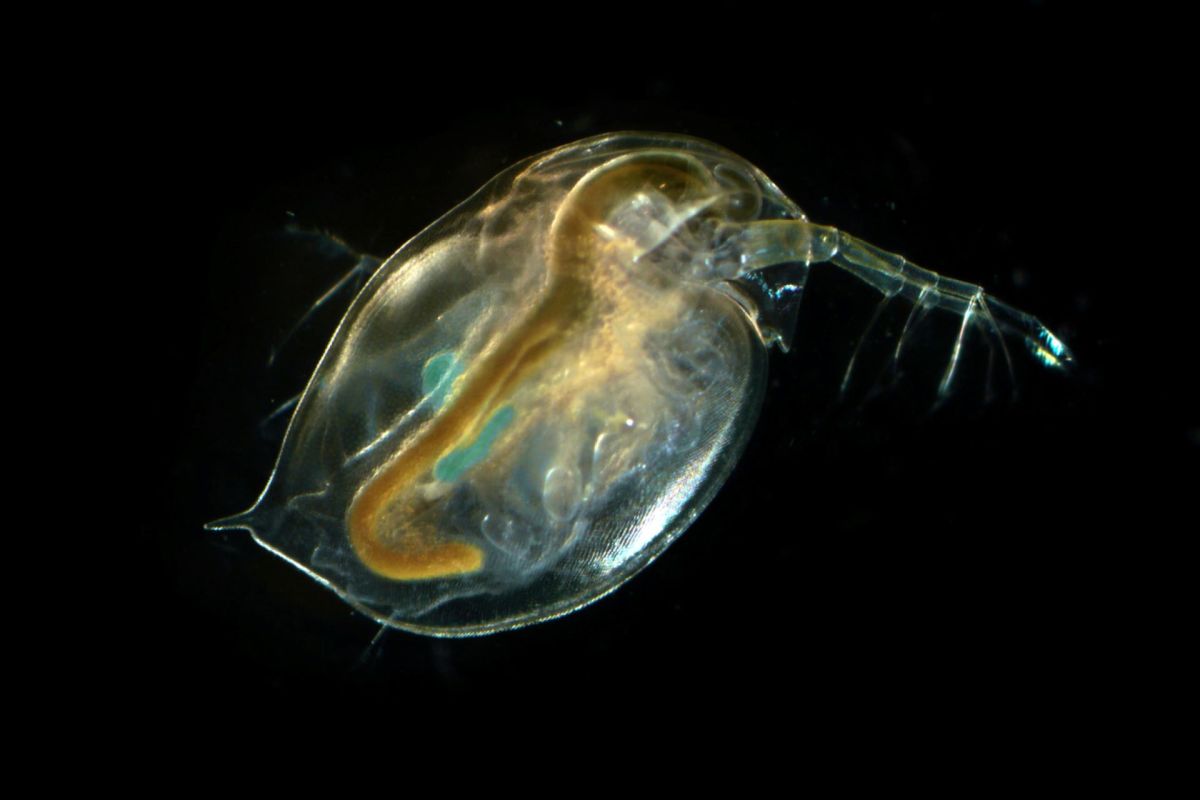The past may be providing a way forward after scientists discovered that dormant strains of a tiny crustacean could be used to remove toxic chemicals from wastewater.
The surprising savior? The water flea.
"This novel nature-inspired technology provides a potentially revolutionary process for sustainably removing persistent chemical pollutants from wastewater. By preventing these chemicals from being discharged, we can protect our environment and biodiversity," Muhammad Abdullahi, the lead author of the study, said in a press release by the University of Birmingham.
Pharmaceuticals, heavy metals, arsenic, and PFOs — a type of forever chemical under the per- and polyfluoroalkyl substance umbrella — were among the contaminants removed.
One of the keys lies in the scientists' ability to "resurrect" strains of the resilient water flea, or Daphnia, that were best suited to the task.
"The water flea's remarkable ability to remain dormant for centuries allows scientists to revive dormant populations that endured varying historical pollution pressures. Leveraging this trait, researchers sourced strains with diverse tolerances to chemical pollutants, incorporating them into the technology," senior author professor Luisa Orsini explained in the university's release.
The researchers believe their findings, published in the journal Science of the Total Environment, could be used to help the estimated 92 million whose health is "detrimentally" impacted by chemical contamination in the food chain and water supply.
They also indicated that the water fleas could be a low-cost way to alleviate the "unprecedented pressure" on our water resources — exacerbated by the overheating of our planet, a growing global population, the destruction of nature for urban expansion, and unsustainable food production.
According to the United Nations, 2 billion people live in areas under "high water stress," and 80% of wastewater reenters our environment without being reused or receiving treatment.
However, expensive or time-consuming solutions can be a hindrance to protecting more disadvantaged or vulnerable communities, with Our World in Data noting that unsafe water is linked to more than 1 million deaths every year.
Co-author professor Karl Dearn, who is from the university's School of Engineering, pointed out that the reproductive capabilities of the water flea make the system relatively low-maintenance, further sparking optimism for the technology's applications.
"We introduced these remarkable water fleas into custom containment devices to refine effluent before its final release. Once in place, our technology largely maintains itself," Dearn said in the press release.
Join our free newsletter for weekly updates on the coolest innovations improving our lives and saving our planet.









